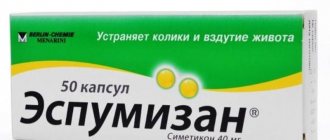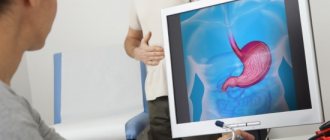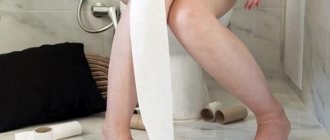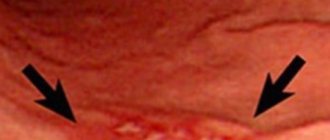An unpleasant odor from the mouth after a tooth extraction procedure is a rare symptom indicating the onset of a complication - gum inflammation. Many patients, when an unpleasant odor appears, consider this not a serious problem, seeking medical help only after pain appears. This tactic is fundamentally wrong! If you had a tooth extraction surgery the day before, after which you began to feel an unpleasant odor, immediately contact your dentist for a consultation and preventative examination. This is the only way to avoid unpleasant consequences.
Important! If the tooth extraction operation is performed correctly, all sanitary and hygienic norms and rules are observed, and the doctor’s recommendations are followed, an unpleasant odor from the mouth never occurs.
Causes of bad breath after tooth extraction
To avoid complications in the form of inflammation in the mouth after the tooth extraction procedure, it is important to take measures.
- On the first day the wound bleeds. To stop bleeding, you need to apply a cotton swab.
- On the first day, it is better to avoid rinsing the mouth.
- Eat food at room temperature, not spicy.
- If you have severe pain, take painkillers.
- An ice compress applied to the cheek will relieve soreness.
- Stop smoking and drinking alcohol.
- Rinse your mouth with an anti-inflammatory solution prescribed by your dentist for a week.
- On the first day, it is better not to brush your teeth; on the second day, do not touch the site of tooth extraction with a toothbrush.
If you have doubts about the competence of the attending physician who performed the removal, it is better to seek a second consultation at a nearby dental clinic.
If you follow the rules, the removal will take place without complications.
If a putrid odor appears after tooth extraction, you should urgently visit a doctor in order to promptly stop the inflammatory process and prevent complications. Pain syndrome after removal, if no complications occur, disappears after three days.
Another sign of not entirely normal healing of the hole after tooth extraction is an unpleasant odor. This is an indicator that an inflammatory process has begun in the oral cavity, often of an infectious nature. It can affect both bone and soft adjacent tissues. Usually, after the removal of a dental unit, most often a wisdom tooth, the smell appears 3–5 days after the operation. For this reason, if your breath smells like rot, you should immediately contact a specialist.
However, an unpleasant odor does not always indicate the presence of an inflammatory process. Its cause may be the use of medications designed to reduce pain, prevent inflammation and provide an antibacterial effect. The smell will go away at the end of the therapeutic course, when the microflora is restored and salivation normalizes.
Open hole
An open socket means the absence of a blood clot, which would normally form after the procedure. In some cases, it comes out on its own, but more often it is washed out due to non-compliance with the doctor’s recommendations. To avoid such a problem, you should not rinse your mouth for a day or two with any decoctions, water, or any medications; it is not advisable to drink with a straw, since a vacuum is created in the mouth that can “pull” the clot out of the hole.
The clot is needed to protect the wound from bacteria and microbes present in the oral cavity. Without it, the infection easily penetrates into the wound that has not healed after tooth extraction, causing inflammation, which is characterized by the appearance of bad breath.
There is a group of people who are more likely to wash out the clot on their own. These include:
- smokers;
- people with bleeding disorders;
- women during hormonal treatment.
Gum diseases
The reason why your mouth smells bad after tooth extraction is the presence of gum disease and other dental pathologies. There are a large number of pathogenic microbes present in the oral cavity. They can provoke an inflammatory process that spreads to neighboring teeth, especially those where there is plaque, stones, and soft tissue, leading to the development of all kinds of diseases:
- caries;
- periodontal disease;
- periodontitis;
- gingivitis;
- stomatitis;
- candidiasis.
All these diseases are accompanied by the appearance of bad breath and require proper treatment. So if your breath smells bad, you need to immediately go to the dentist’s chair.
Any mistake by the dentist during the operation, as well as the patient’s disregard of safety standards after the procedure, can lead to the development of infection in the vacated hole.
The most obvious signs of this process are bad breath and severe pain. If you do not seek help from a specialist in time, the symptoms will become more acute, the pain and smell will intensify until they lead to the development of more serious diseases that require the immediate intervention of a dental surgeon.
It often happens that tooth extraction itself is complicated by circumstances, for example, when the tooth has a non-standard shape, it grows incorrectly, or the patient came to the dentist at a time when part of the dentin was already destroyed. Under these conditions, it is difficult to guarantee that even a successful outcome of the operation will not result in unpleasant complications.
It is necessary to pay attention to the unpleasant breathing that interferes with the patient and those around him. Signs of pathological processes are a rotten, purulent or ammonia smell. But the smell of medicine from the mouth after tooth extraction indicates that after extraction, the dentist placed a potent medicine in the gum socket, which is aimed at fighting bacteria and speeding up healing.
The most common causes of bad breath and pain after surgery are:
- Failure of the patient to comply with the recommendations prescribed by the doctor. After surgery, you should not eat or drink for at least two hours. In the first day after removal, you should not brush your teeth. The first time after the surgeon’s intervention, it is imperative to rinse the mouth with special preparations that protect against infection getting into open wounds.
- In some cases, severe pain after extraction can be caused by the remaining part of the tooth in the socket. This may be a small fragment of a root that will not allow the wound to heal and disturb it regularly. In this case, the pain will be constant, and a purulent smell from the mouth will indicate suppuration or the development of more serious consequences.
- Removing a blood clot from a wound causes the socket to dry out and lose its protection. Decomposing food and bacteria enter the vulnerable gums, causing pain and an unpleasant odor. If, on the first day after tooth extraction, you independently remove a naturally formed blood ball from the alveoli, or if it falls out on its own or is washed out with water, you should consult a doctor, after which he will decide how to speed up the healing of the wound.
- Chronic gum diseases prevent the rapid healing of the wound formed after tooth extraction, and sometimes constant bleeding allows harmful bacteria to enter vulnerable tissues. As a result, the gums become inflamed, there is aching pain and constant bad breath.
- In cases where the patient does not conscientiously follow the rules of hygiene, the healing period of the hole after extraction can also be complicated.
- Reduced immunity or chronic diseases can cause pain and bad breath after tooth extraction.
The first thing the patient should know: if after tooth extraction the gums hurt and bad breath cannot be masked by any means, it means that serious complications have begun to develop after dental surgery.
Symptoms indicating complications after tooth extraction develop gradually, but are easy to identify:
- First, a gradually increasing pain is felt in the vacated hole;
- The patient may notice that instead of the swelling of the cheek decreasing after the extraction surgery, it becomes swollen and the gums closest to the extraction site appear hyperemic (enlarged and red). Sometimes you can notice how the submandibular lymph nodes swell;
- Bad breath after tooth extraction appears on the third to fifth day after surgery;
- An unpleasant odor may also be accompanied by an unpleasant sight: clots of pus are released from the alveoli or a gray or yellow coating appears on the wound;
- The patient may feel general weakness, dizziness, headache;
- Typically, during the inflammatory process, body temperature rises;
- In some cases, nausea occurs, in others, drowsiness is felt.
Patients often experience complications after wisdom tooth removal. It is worth noting that the pain after the procedure for removing third molars - that is, wisdom teeth - will last much longer than when removing others. This is due to their location in the mouth, size and structural features.
We suggest you read: When and how to restore a tooth after extraction
Bad breath and pain may indicate that complications have arisen in the postoperative period as a result of certain disorders. Why should you consult a doctor at the first suspicion of the onset of an inflammatory process?
The fact is that ignoring these signs usually leads to the development of the following complications and diseases:
- Alveolitis;
- Cyst;
- Sepsis;
- Purulent abscess;
- Periostitis;
- Osteomyelitis.
Tooth extraction should not be accompanied by any complications if the procedure was performed correctly. But if an unpleasant odor has already appeared, then this indicates that an inflammatory process has begun. If the hole is infected due to tooth extraction, the aroma will appear within 2-3 days. It is worth treating this defect very carefully, because the consequences may not be the most pleasant. Therefore, if there is an aroma that is not typical for you, then immediately visit the dentist.
Pain in the socket and swelling of the cheek after tooth extraction
Precursors to the appearance of odor during gum inflammation can be:
- aching or cutting pain in the socket;
- increased body temperature;
- chills;
- headache;
- feeling of weakness, dizziness;
- nausea;
- drowsiness.
An increase in temperature is a reason to go to the dentist
In order to avoid complications and unpleasant odors after an operation such as tooth extraction, it is necessary to take preventive measures.
- Bleeding may occur on the first day after the procedure. In order to eliminate it, you need to put a bandage or cotton wool on the wound. You need to keep it for about 20 minutes. Do not remove the tourniquet abruptly, as this may cause even more bleeding.
- On the first day, try not to rinse your mouth.
- Eat food only chilled, preferably not spicy.
- If unbearable pain appears, then take some kind of painkiller.
- You can apply a cold compress, but not to the wound, but to the cheek.
- When you go to bed, use an extra pillow. This will improve blood circulation.
- After tooth extraction, it is advisable not to brush your teeth for several days.
Consequences
If measures are not taken in a timely manner, a number of complications may develop. The most dangerous:
- Inflammation of the periosteum. The pathology is accompanied by severe pain in the jaw and swelling of the gums. Discomfort worsens at night, during meals. The inflammatory process gradually spreads to the neck, chin, and lips. In advanced stages, there is an increase in temperature, headaches, and the appearance of white plaque in the alveoli. The pathology is eliminated by using antibiotic medications and washing the wound with antiseptics.
- Alveolitis. Sometimes it occurs without clinical manifestations, more often it is accompanied by pain, which is first pulsating and then constantly aching. Typically, this complication develops as a result of figure eight extraction. Quite often, alveolitis is accompanied by the appearance of an unpleasant odor. Therapy consists of the use of antibacterial and anti-inflammatory drugs.
- Abscess. A similar complication occurs as a result of tissue injury during tooth extraction. Purulent processes begin to develop in the area of damage. The situation can get worse if the patient does not follow medical recommendations.
This is why it is so important to visit a medical facility at the first negative signs after tooth extraction, including unpleasant odor from the oral cavity.
We looked at why bad breath occurs after tooth extraction.
A tooth was removed: what reaction is considered normal?
Removing a tooth, especially the eighth molar, or wisdom tooth, which has a complex structure and is located in a hard-to-reach place, is a very complex procedure. During its implementation, severe tissue damage occurs, which is why the body’s normal reaction to the procedure and the healing of the resulting hole is accompanied by the following symptoms:
- Bleeding. About half an hour after the tooth is removed, blood is released from the socket. Subsequently, it folds and forms a clot that prevents infection from entering the healing socket.
- Pain in the gums. They appear after the anesthesia wears off. This is quite normal, since the gum tissues were injured, and in addition to them, the nerve endings located near the root system of the tooth could also be affected. It is important to monitor the intensity of the pain. If it gradually goes away, then healing is proceeding as it should, but if it grows, then you should consult a dentist.
- Slight increase in body temperature. During the first day after the tooth is removed, it can rise to 37–37.5 degrees. This is a natural reaction to trauma.
- Swelling. If the swelling is small and does not continue to increase, then there is no need to panic. It should go away in 1-2 days.
What causes inflammation and suppuration
The main causes of bad odor after surgical tooth extraction.
After the tooth is removed, the doctor tells you what to do. The first and most important rule is not to consume anything for two hours. The second thing you should never do is brush your teeth on the first day. The doctor prescribes a special product with which you need to rinse your mouth regularly.
Dry gum skin
After the removal of a wisdom tooth, an odor may still appear due to the fact that the socket has dried out (alveolitis). After some time, a blood ball forms in it, which will prevent the infection from getting inside. This ball cannot be touched or removed. But there are situations when the clot falls out on its own and it is because of this that the hole dries out. This problem can occur in people who have blood problems or take hormonal medications.
If such a problem arises, then you should contact your dentist, he will prescribe medications that will prevent the infection from getting inside.
Suppuration of the socket due to alveolitis
An unpleasant odor may appear in a person who has problems with dental tissues.
If an unpleasant odor appears after your tooth has been pulled out, carefully examine your gums. It happens that when a tooth is removed, a piece remains and it disturbs the wound. This causes severe pain and a bad smell. In order to eliminate it, you need to contact your dentist. After removing the piece, the painful sensation and smell will go away.
Remember, if a wisdom tooth has been removed and your mouth smells rotten, this is the first sign of inflammation.
The pain may go away for a while, but will return over time. Therefore, if the smell does not go away on its own within 24 hours, then you should urgently visit a doctor. But what to do if this is not possible.
Prevention
After tooth extraction, in the first hours, hold the sterile swab for at least 20-30 minutes. Remove it very carefully so as not to damage the blood clot formed in the socket, which protects it from infection.
On the first day, limit your food intake, or better yet, give it up completely. Dishes should not be hot or cold. Give preference to dishes with a puree-like consistency that do not require mechanical processing in the oral cavity.
If there is severe swelling, apply the cold to the cheek and hold it until the swelling subsides. At night, while sleeping, place your head in an elevated position.
After tooth extraction, do not brush your teeth for another day. Next, resume hygiene procedures, but try to avoid the hole left after tooth extraction with a toothbrush.
Rinse your mouth daily after each meal with disinfectants for a week. Your dentist will recommend a rinse solution for you. A solution of furatsilin, chlorhexidine, miramistin is best suited here.
What to do before seeing a doctor
There are different situations in life and it is not always possible to visit a doctor. If such a situation arises, then you need to help yourself. When a wisdom tooth is removed, bad breath appears in any case. But it is worth distinguishing the inflammatory process from ordinary daily discomfort. In order to eliminate the smell, you need to contact your dentist, and if this is not possible, then do the following:
- Try to brush your teeth thoroughly and treat your entire mouth well. It will be good if you use floss during oral hygiene.
- After your main meal or snack, be sure to rinse your mouth. To do this, you can use plain water or herbal infusions.
- You can also use a mouthwash that has an anti-inflammatory effect. But be sure to pay attention to the composition, it should not contain alcohol, and it is advisable to contain mint or eucalyptus. This solution can be prepared at home.
- Use a special brush to clean your tongue.
- Try not to eat junk food, such as fast food.
We suggest you read: How to relieve swelling and irritation after dental implantation
You should start rinsing your mouth the next day after tooth extraction.
If you follow all these rules, the bad breath will partially go away before you go to the doctor. But this does not mean that you do not need to visit the dental office.
Unfortunately, there are situations when it is not possible to get an appointment with a dentist quickly. In this case, you can help yourself by following these recommendations:
- be sure to clean your tongue of plaque using a special scraper;
- When hygienic brushing your teeth, pay more attention to working on all areas, including cleaning the interdental spaces with floss;
- After each meal, be sure to rinse your mouth with warm purified water with the addition of a few drops of mint or lemon essential oil;
- To relieve inflammation, you need to use special rinses that do not contain alcohol. It’s good if they contain mint or eucalyptus extracts;
- You can also rinse your mouth with self-prepared decoctions of oak bark, St. John's wort, lemon balm, chamomile, eucalyptus, sage, mint;
- eat right - eat more nuts, vegetables and fruits, and exclude meat, fish, confectionery, semi-finished products, ready-made fast foods, dairy and fermented milk products.
As for more radical measures, treating the hole where the tooth was with hydrogen peroxide or a solution of potassium permanganate will help relieve inflammation - the hole is carefully soaked with cotton wool and the solution. Lidocaine or Novocaine lotions and cooling compresses will relieve inflammation and pain.
Especially such preventive techniques can protect against further adverse consequences after wisdom tooth removal. There is no need to endure pain and take analgesics - such techniques do not cure. And the purulent process can manifest itself with might and main.
Following the above rules of first aid will help to get rid of bad breath to some extent. However, you will still have to visit the dental office. Only there can they prescribe the correct therapy that will help completely cope with the inflammatory process.
How to get rid of odor at home
If you have bad breath after tooth extraction, you can use traditional medicine in addition to drug therapy. With normal daily discomfort, there is no need to worry. The danger is the development of the inflammatory process. To fix the problem:
- Rinse your mouth thoroughly after eating with plain water or infusions of herbs such as sage or mint.
- To clean your tongue you need to use a specific brush.
- Avoid fast food and junk food.
- Use a decoction of chamomile and calendula. These are powerful tools for fighting inflammation. They promote wound healing. It’s not difficult to prepare a mouthwash: 1 tbsp. l. herbs are poured with 1 liter of boiling water. You need to leave for half an hour, then rinse.
- A golden mustache is often used. To carry out the procedure, squeeze the juice from the plant, then pour boiling water over it.
- Traditional healers recommend rinsing your mouth with a decoction of eucalyptus. This plant perfectly relieves the inflammatory process.
Rotting socket after wisdom tooth removal
Wisdom teeth have a complex root structure, which greatly complicates the procedure for their removal. As a result, the healing period may last longer and be more difficult than with extraction of other units.
Usually, if the wisdom tooth was removed professionally and carefully, without mistakes, and in the postoperative period the patient followed all the doctor’s recommendations, then the risk of infection and complications is minimal. All unpleasant symptoms disappear or their intensity decreases within a few days.
If during the removal there were violations or the rules of oral hygiene and other rules of conduct after the procedure were not followed, then the following symptoms may appear:
- pain that spreads not only to the wound, but also to neighboring teeth, jaw and throat;
- temperature increase;
- suppuration;
- dry socket;
- paresthesia - nerve damage when the tongue, lips and chin become numb.
If, after the removal of a wisdom tooth, the listed symptoms appear, the breath smells and the swelling does not decrease, you need to seek medical help (for more details, see the article: How long does swelling of the cheek last after tooth extraction on average?). The consequences of ignoring the problem can be very serious, including blood poisoning.
If the disease is not treated, the pus can enter the bloodstream and spread very quickly throughout the body, causing blood poisoning.
Suppuration can occur due to improper tooth extraction. It also happens that inflammation appears when the roots are bent. Most often, this disease appears due to the fact that after tooth extraction, the patient did not follow the doctor’s recommendations.
The smell of a rotten egg may indicate that plaque has appeared, which caused inflammation. If possible, you can examine the wound yourself, but it is better to make an appointment with a doctor who treats alveolitis.
Pus from the socket under a microscope
Treatment of alveolitis
- First, the patient is injected with anesthesia, after which plaque, germs and other bacteria are removed. Only a dentist can do this; do not try to get rid of this problem yourself. After which the specialist treats the wound with an antiseptic.
- The next step is to apply the medication. To do this, the doctor opens the hole and puts a strong drug there. Sutures are placed on top of the incision. The person will have to walk around with the medicine until the pain and smell go away. Then, if desired, you can install a prosthesis in that place.
Herbs
In parallel with medications for rotten breath after tooth extraction, the use of folk remedies is allowed, but this should be previously agreed with the doctor. You can effectively eliminate unpleasant odor from the mouth by:
- Decoction of oak bark and sage. To prepare the solution, take two tablespoons of plant material, pour 1 cup of boiling water, and cool. It is highly undesirable to use hot solutions to treat the mouth, since heat stimulates the activity of pathogenic flora.
- Fresh golden mustache leaves. The leaf of the plant should be crushed until the juice comes out, which is then diluted in equal parts with boiled water. This folk medicine should be used twice a day.
- Eucalyptus. This plant will not only freshen your breath, but also reduce the intensity and severity of inflammation.
If there is no result from home treatment within two days, it is important to immediately consult a dentist.
Is purulent smell from the mouth after tooth extraction dangerous?
Treatment
Often, because of a toothache, you have to go to the dentist, and sometimes this tooth needs to be removed. It happens that after this operation no problems arise, but it happens the other way around. If your breath smells unpleasant after tooth extraction, this indicates that an inflammatory process has begun. To relieve inflammation and kill harmful microbes, the dentist prescribes rinsing. It helps eliminate food debris and bacteria that can cause complications.
To rinse, you need to use antiseptic and anti-inflammatory agents. It is advisable to rinse your mouth with different decoctions. Such procedures can relieve inflammation, if any, and help the wound heal quickly.
Mouth rinses
To eliminate bad odor, doctors recommend using solutions such as:
- Furacilin is a good antiseptic that helps eliminate inflammatory processes. It helps protect the wound from infection. It is often prescribed for severe purulent inflammation. In order to prepare it, you need to throw one tablet of the drug into warm water.
- Chlorhexidine has the same properties as furatsilin. Quickly eliminates bad breath due to inflammation. It is often prescribed immediately after tooth extraction.
- Miramistin instantly removes the unpleasant odor when removing a wisdom tooth. It is often used for complications and inflammatory processes.
It happens that after a tooth has been pulled out, the smell of medicine appears. This happens because the doctor placed a tampon with some kind of drug in the hole. Dentists do this to prevent inflammatory processes from occurring. After a while, the tampon is removed, and the aroma of the medicine automatically disappears.
Sutures after removal promote rapid healing
Specialists use not only traditional means, but also non-traditional ones.
To eliminate unpleasant odor, dentists often recommend rinsing the mouth with various decoctions. They not only kill the unpleasant odor, but also help prevent infection. Herbs are natural antiseptics that speed up the healing process of wounds after surgery.
The herbal mixture will be recommended by the dentist
The following herbs can be used to remove unpleasant odors:
- Calendula and chamomile are powerful remedies that easily fight inflammatory processes and allow wounds to heal quickly.
- The herbal collection has the same properties as calendula and chamomile. In order to prepare it, you need to take 1 tablespoon of the herb and pour it with a liter of boiling water. The herb should sit for 30 minutes and then you can rinse your mouth.
- Golden mustache is used in medicine in almost all industries. It can be used both for rinsing and applied to a sore spot. In order to prepare the remedy, you need to squeeze the juice from the plant and pour boiling water over it.
- Eucalyptus is a very good anti-inflammatory agent. A lot of rinses are sold in pharmacies with this plant.
We suggest you read: Do you need to take antibiotics after tooth extraction, which ones to take after wisdom tooth removal
If after the removal of a wisdom tooth the smell does not go away, but rather intensifies, then you should consult the doctor who performed the operation. He will examine the wound and prescribe treatment. You should not refuse to visit the dentist, because this can negatively affect your health.
Specialists will clean the wound, into which they will then place a potent medicine; you will have to walk around with it for a certain time until the gums hurt and the foul odor stops. If necessary, more radical measures of therapy with painkillers, antibiotics, and additional exposure to microwaves or lasers may be prescribed according to indications.
With proper treatment, the hole will heal in a week, and after two weeks you can completely forget about inflammation.
Antibiotics
Such drugs are not prescribed only when teeth are removed due to their abnormal growth or the patient is preparing for prosthetics. But before and after surgery, especially in case of inflammation of the gums or in connection with any other difficulties, their use is practiced quite often. Among the most popular medications of this type today are:
- Clarithromycin is a semisynthetic drug of the second generation of the macrolide group. Used for the treatment of acute and aggravated chronic pathologies in the maxillofacial area. It is also used to prevent complications before dental operations for patients who are at risk. Contraindicated in case of hypersensitivity to the active substance, as well as in pregnant and nursing mothers, babies under 6 months;
- Flemoxin is a strong drug of the penicillin group with a wide spectrum of action. Contraindicated in infectious lymphocytic leukemia and mononucleosis. During pregnancy and breastfeeding it is indicated only in exceptional cases. A pack of 20 tablets of 125 mg costs about 230-250 rubles;
- Lincomycin - its active ingredient lincomycin hydrochloride, suppresses gram-positive aerobic and anaerobic bacteria, viruses, fungi. It is effective, but has a number of contraindications: liver and kidney diseases, pregnancy, breastfeeding. Produced in ampoules and capsules. Sold at a price of 20 ampoules from 110 rubles, the same number of capsules from 140 rubles;
- Amoxicillin also has a wide range of action, but has many contraindications: pregnancy and lactation, infectious mononucleosis, liver pathologies, dysbacteriosis, lymphocytic leukemia, ARVI, bronchial asthma, diathesis. Approved for the treatment of patients over 12 years of age and weighing more than 40 kg. Available in capsules and tablets of 500, 750 and 1000 mg, granules for suspension. A package of 16 tablets of 500 mg costs an average of 120 rubles, granules for suspension from 140 rubles. You may also find it useful to familiarize yourself with the list of antibiotics for stomatitis.
Rinsing
It is used to eliminate food debris and relieve inflammation. For this, antiseptic and anti-inflammatory drugs, as well as various decoctions, are usually prescribed. This technique promotes rapid wound healing.
Rinse your mouth carefully (remember, the clot must remain in the hole!). It is enough to simply put an antiseptic solution in your mouth and hold it over the problem area. Rinsing begins a day or two after tooth extraction. And the procedure itself is indicated once every 6 hours. If for some reason there is a cotton swab with a similar product in the hole, then the mouth is not rinsed and the wound is not removed.
To eliminate bad odor after tooth extraction, doctors mainly recommend solutions:
- Furacilina - often prescribed for severe purulent inflammatory processes. The solution is prepared just before rinsing: 2 tablets of the preparation are dissolved in a glass of boiling water and allowed to stand until cooled;
- Chlorhexidine - it has the same properties as Furacilin. Quickly removes bad breath from inflammation. In addition, it provides a regenerating effect;
- Miramistin is a good remedy for bad breath and prevents the formation of pus in the socket when a wisdom tooth is removed. It is often used for complicated inflammatory processes.
Along the way, dentists often recommend rinsing the mouth with various decoctions. Being natural antiseptics, herbs not only eliminate unpleasant symptoms, but also accelerate wound healing after surgery.
If sore gums and a foul odor, and this is already a purulent process, are not treated, then serious complications may arise in the form of periostitis, advanced osteomyelitis, abscess and other pathologies that require surgical treatment. After all the manipulations to clean the inflamed area from pus, the dental surgeon will again give advice to the patient on how to behave after the operation, how to rinse the mouth and lubricate the wound so that it heals faster.
How to get rid of odor at home
If you have bad breath after tooth extraction, you can use traditional medicine in addition to drug therapy. With normal daily discomfort, there is no need to worry. The danger is the development of the inflammatory process. To fix the problem:
- Rinse your mouth thoroughly after eating with plain water or infusions of herbs such as sage or mint.
- To clean your tongue you need to use a specific brush.
- Avoid fast food and junk food.
- Use a decoction of chamomile and calendula. These are powerful tools for fighting inflammation. They promote wound healing. It’s not difficult to prepare a mouthwash: 1 tbsp. l. herbs are poured with 1 liter of boiling water. You need to leave for half an hour, then rinse.
- A golden mustache is often used. To carry out the procedure, squeeze the juice from the plant, then pour boiling water over it.
- Traditional healers recommend rinsing your mouth with a decoction of eucalyptus. This plant perfectly relieves the inflammatory process.
Causes
Bad breath after surgery can occur for various reasons:
- the absence of a blood clot, which plays an important role in the healing of the gums (can be removed if the patient rinses his mouth with special zeal and often), the dry socket that forms as a result becomes open to the access of microbes - a pungent odor appears from the mouth, and the gums begin to ache;
- when a tooth was removed, nerve endings were affected or bone tissue was injured; the patient’s tongue, gums, cheek and lip may become numb, bleeding and an unpleasant odor may occur;
- the patient’s disdainful attitude towards the doctor’s recommendations, which he necessarily gives after the operation - failure to comply with them contributes to the development of inflammation;
- the entry of a foreign body into the hole, for example, a fragment of a tooth, also provokes a putrefactive process with all its negative consequences.
For diabetes
In patients with diabetes mellitus, tooth extraction quite often leads to hematoma. To eliminate the tumor, the dentist makes an incision into the soft tissue of the gums, and then installs drainage in the surgical field.
Putrid odor from the mouth after tooth extraction is the first sign of the development of disorders. The exact cause of the problem can only be identified by a specialist. He also selects the most acceptable and effective way to eliminate it.
What causes bad breath after tooth extraction?
Possible complications
Among the most common complications that arise if measures are not taken at the initial stages of the inflammatory process, it should be noted:
- alveolitis is a purulent inflammation of the socket after a complex tooth extraction with an incision on the gum. The inflammatory process does not begin immediately, but after a few days, and, characteristically, without any special symptoms. At first it just aches, but then the process turns into a throbbing constant pain. The patient has difficulty opening his mouth, and the gums become very red. The disease is typical when a wisdom tooth is removed;
- Osteomyelitis is an inflammation affecting the bone structures of the jaws. One of the most dangerous complications of the tooth extraction procedure. The main signs are increasing pain, pronounced swelling on the face, increased fatigue, and the spread of inflammation to other areas of the jaw. It is treated only in a hospital setting, mainly by surgery;
- gum abscess - usually formed when the soft tissues of the mouth were damaged during tooth extraction. This is where purulent processes form. Failure of the patient to comply with postoperative recommendations aggravates the situation.
Oral abscess
An unpleasant odor may also be the first symptom of an abscess that occurs during a previous tooth extraction procedure. An abscess is a suppurated area of soft tissue that is delimited from surrounding tissue by a pyogenic capsule. In this regard, the inflammatory process does not spread to other tissues, but at any moment this cavity can break through.
After tooth extraction, favorable conditions are created for infection of the soft tissues of the gums, cheeks, tongue, floor of the mouth, soft palate, pharynx and pharynx. At first, as with normal inflammation, the patient will be bothered by bad breath, and only then will symptoms of intoxication, pain and swelling appear.











